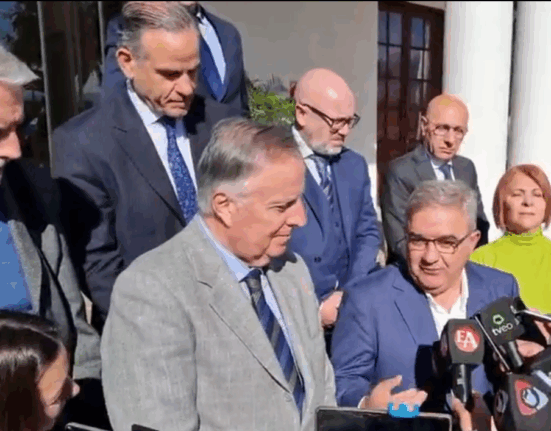In a strategic move to boost regional infrastructure, the governors of Neuquén, Río Negro, and Chubut came together in Rawson to finalize an agreement for the expansion of the Patagonian Mountain Gas Pipeline. This significant project aims to provide gas connections to over 12,000 households across 25 towns in Patagonia, signaling a major step towards enhancing energy accessibility in the region.
During their meeting, the governors emphasized the crucial role that Patagonia plays in powering the nation’s economy. As they greenlit the extension of the Cordilleran Patagonian Gas Pipeline – which will link up with the General San Martín duct stretching from Tierra del Fuego to Buenos Aires – they delivered a clear message highlighting the region’s contribution to Argentina’s prosperity:
“El país funciona con lo que produce la Patagonia.”
The ambitious endeavor includes constructing four compressor plants at an estimated cost of around $50 million. These facilities are set to bolster the pipeline’s transmission capacity by 10%, covering a distance of 1,700 kilometers from Río Senguer in Chubut all the way to Collón Curá in Neuquén via Río Negro. Financial backing for this venture will come from Camuzzi Gas del Sur and provincial banks in Chubut and Neuquén.
In a display of unity and determination, these three governors underscored their commitment to fostering regional growth while advocating for a fairer distribution of resources across Argentina. They voiced their discontent with what they perceive as a centralization of power in Buenos Aires, criticizing it as detrimental to national progress.
Governor Torres articulated this sentiment succinctly by stating:
“Hoy hay otra realidad. Los patagónicos somos conscientes de que para que Argentina crezca tiene que mirar al sur.”
The emphasis on decentralization and empowering local decision-making processes reflects a broader trend among provincial leaders who are seeking greater autonomy from centralized governance structures.
Figueroa highlighted this shift during his address regarding upcoming elections, urging voters to support provincial representatives who prioritize regional interests over directives emanating from centralized authorities:
“dejen de recibir órdenes desde el Obelisco y defiendan los intereses de la gente de las provincias.”
This collaborative effort marks a turning point in addressing longstanding infrastructural challenges that have hindered development in the region for over two decades. Governor Torres captured this sentiment when he remarked on how this partnership between Patagonian provinces has unlocked opportunities that were previously elusive:
“Los gasoductos son obras que no se ven, son caras, pero absolutamente necesarias.”
The journey towards expanding the Cordilleran Gas Pipeline began back in 2013 but faced delays before being put out for tender in 2017. Former President Mauricio Macri inaugurated its initial phase in January 2019 – underscoring both the complexity and time-intensive nature of such critical infrastructure projects.
As discussions around regional development continue gaining traction, Governor Weretilneck emphasized the pivotal role that collaboration plays within federal structures like Congress:
“El Congreso es el lugar donde debemos defender los intereses de Río Negro y Neuquén.”
His sentiments echo a growing sentiment among provincial leaders who seek stronger representation at national decision-making forums.
Looking ahead to future legislative elections without blanket party lists, Governor Figueroa hinted at a more level playing field where local priorities can take center stage without being overshadowed by national agendas: “En la próxima elección legislativa…Río Negro y Neuquén van a estar en igualdad de condiciones para evitar el arrastre de los candidatos nacionales.”
The concerted efforts of these governors not only signify a push for regional autonomy but also highlight their shared vision for promoting sustainable development strategies that cater to local needs while propelling Argentina towards inclusive growth.









Leave feedback about this